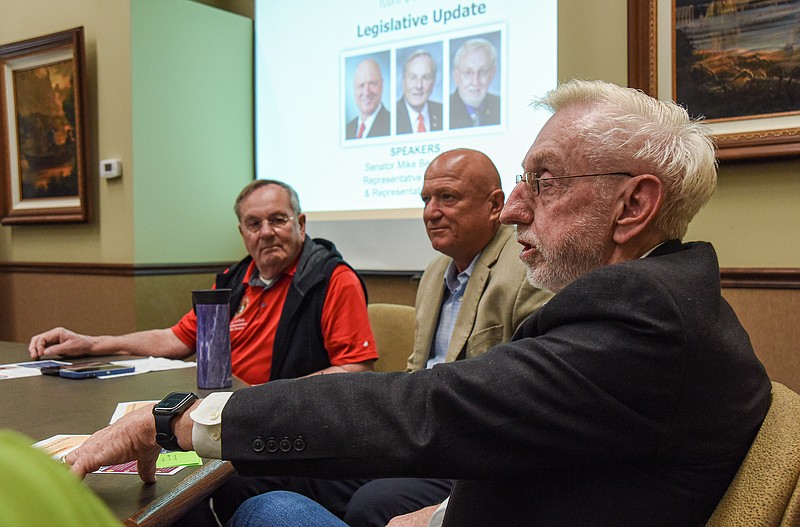Missouri House staff members are bracing for a record number of bills to be pre-filed today.
Dec. 1 marks the first day lawmakers can submit their bills for the upcoming legislative session, which begins Jan. 3. Nonpartisan staff in both the House and Senate coordinate the flurry of action to ensure bills are ready to move the first day of session.
The number of pre-filed bills has been trending up for the past couple years, House Communications Director Ben Peters said. And 2024 is an election year, which tends to see more legislation filed.
"Everyone's kind of interested to see how this all goes," Peters said. "There's a little anxiety to it sometimes, I can say that."
With 372, the 2022 legislative session holds the record for number of bills filed on the first day of pre-filing.
"We may actually beat that," Peters said, adding he's expecting upward of 400 bills to be filed.
House and Senate research and drafting staff began working on the language in the bills Nov. 1.
Work then typically moves in stages, Peters said. After the bill is written and pre-filed by the legislator, House and Senate staff process the bill, assign it a number and record it in the respective chamber journals.
Pre-filed bills are then introduced on the first day of the legislative session. Lawmakers can continue submitting bills through the 60th day of the session.
"It's kind of a never-ending process until that deadline ..." Peters said. "For us, it's really just an all-hands-on-deck approach."
Legislator offices can experience a lull leading up to Thanksgiving, said Matt Morris, chief of staff for Sen. Mike Bernskoetter, R-Jefferson City. The week after is "back to business as usual."
"It's a lot closer to what it's like during session," he said.
Work ramps up between Dec. 1 and the start of the session, Morris said. In addition to pre-filing legislation, he begins researching topics for the session and welcoming stakeholders to Bernskoetter's office to gather their input.
Bernskoetter has multiple bills he plans to pre-file, several of which he sponsored in the past but didn't get across the finish line. Unlike the House, pre-filing in the Senate is done in rounds where each senator can file up to three bills.
Bills filed early tend to reach leadership and move through the legislative process quickly, Morris said. They're given the longest opportunity for a hearing, he said, but it doesn't guarantee they'll get one because committee chairs decide hearing schedules.
Come Jan. 3, "they'll hit the ground running," Morris said.
The House last session passed a rule limiting representatives to 20 bills. It was a conscious effort to make lawmakers consider their priorities, Peters said. The rule is still in place for the 2024 session.
Rep. Dave Griffith, R-Jefferson City, said he's planning to file about 15 bills today. A bulk of the legislation deals with military personnel and veterans, he said, but others came from constituent concerns.
Filing bills before the start of session provides more time to lobby House leadership to support their passage, Griffith said.
The third-term representative said he's not concerned about being limited to 20 bills this session. Lawmakers tend to file too many bills and "some get lost in the clutter," he said.
Rep. Rudy Veit, R-Wardsville, said he's planning to file about eight bills today. He sent bills to the House drafting staff the first day they began accepting them so his legislation was written and could be submitted today.
"If you get it down to drafting early, they have more time to work on it and you have more time to work on it," he said. "And you're less likely to have to file amendments to correct some technical error."
Most of Veit's legislation is focused on legal matters, such as a bill on court redaction rules. He's also working with other lawmakers to develop legislative fixes to issues in existing statutes.
Filing bills early "may not help that much but it certainly doesn't hurt," Veit said.

